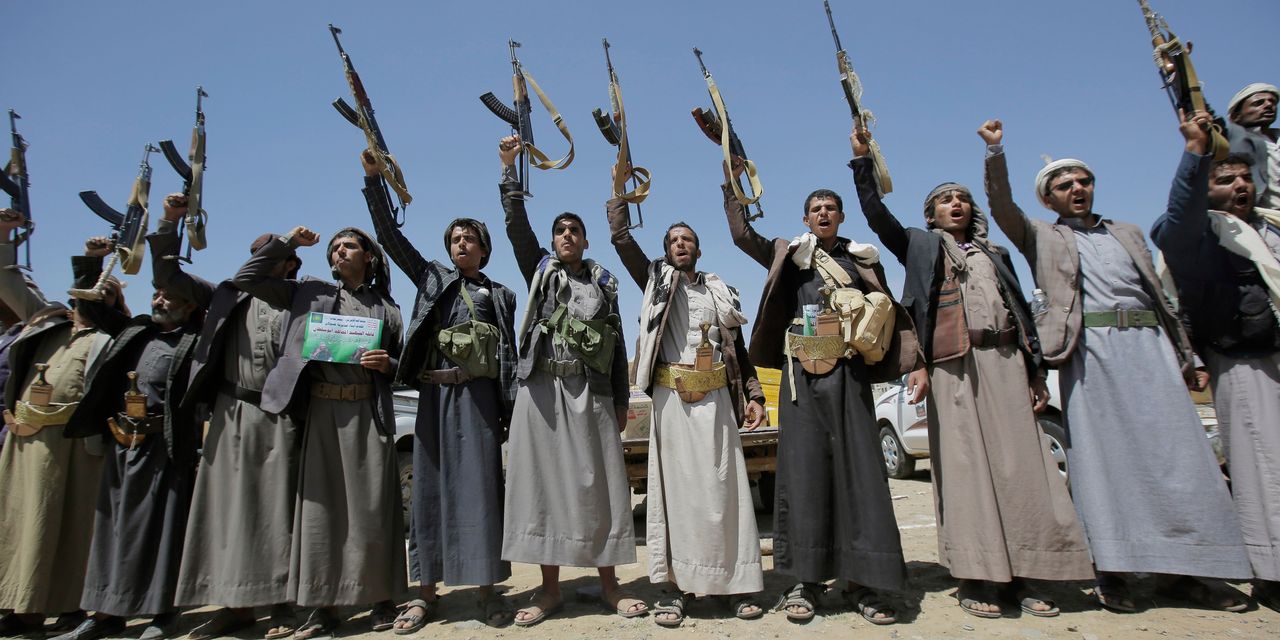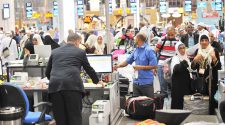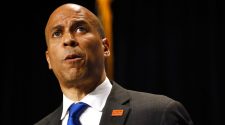BEIRUT—Houthi militants in Yemen have warned foreign diplomats that Iran is preparing a follow-up strike to the missile and drone attack that crippled Saudi Arabia’s oil industry a week ago, people familiar with the matter said.
Leaders of the group said they were raising the alarm about the possible new attack after they were pressed by Iran to play a role in it, these people said.
It couldn’t be determined how serious the threat was and Houthi claims have long been met with skepticism by Western officials. But Saudi Arabia and the U.S. have both received the information, according to people briefed on the warnings.
Saudi Arabia has beefed up its security in response, according to people familiar with the moves. Saudi Arabian officials are concerned about an another attack on the oil industry or a strike on civilian airports, including the one in Riyadh, the capital.
Mohammed Abdul Salam,
the Houthi spokesman, denied Saturday that the group had delivered any warning to foreign diplomats about potential Iranian attacks. A spokesman for Iran’s U.N. mission in New York didn’t respond Saturday to requests for comment.
The U.S. and Saudi Arabia have accused the Houthi forces of falsely claiming to have carried out the Saudi attack to cover up the role Tehran allegedly played in orchestrating the sophisticated airstrike, an accusation that Iran and the Houthis have denied.
There are disagreements within the Houthi movement over how closely to align with Tehran, and the U.S., U.N. and Saudi Arabia have all sought to empower those Houthi leaders seeking to distance themselves from Iran, the people familiar with the matter said.
Some Houthi leaders see Iran as their only hope of winning the fight with Saudi Arabia. Others view the move to deepen ties with Tehran as a mistake.
If the warnings prove to be true, they could signal a break between Iran and at least some factions of the Yemeni rebels
The Houthis seized the Yemeni capital San’a in 2014 and now hold a large chunk of the country’s north along the Saudi border, fighting a civil war with Iranian backing against the Saudi-led coalition. The conflict has left nearly 100,000 dead, with airstrikes by the Saudi-led coalition and Houthi rocket attacks both claiming civilian lives.
In recent days, the people familiar with the matter said, Iran let Houthi fighters know that they wanted their support in carrying out more attacks across the region. The Houthis responded unexpectedly, by offering a unilateral cease-fire on Friday to Saudi Arabia.
The cease-fire offer raised hopes among Gulf leaders, American officials, and Western diplomats that it could drive a wedge between Tehran and its Yemeni allies.
Mohammed al-Bukhiaiti, a member of the Houthi political council, urged Saudi Arabia to join them in the cease-fire.
“Yemen has nothing more to lose,” he told The Wall Street Journal. “Yemen and Saudi Arabia have common interests and that is why we hope Saudi leadership will respond to this initiative.”
Iran has dismissed the U.S. and Saudi accusations that it is behind the strike as propaganda meant to isolate Tehran as the Trump administration sanction’s the country’s economy.
The U.S. and Saudi Arabia have yet to provide conclusive evidence of any Iranian role. European leaders have said they haven’t seen any clear links showing that Iran launched the attack. The U.S. and Saudi are scrutinizing pieces of the drones and missiles recovered from the attack and reviewing satellite information as they try to pinpoint who launched the airstrikes.
U.S. officials suspect that Iranian forces used a base in southwestern Iran to launch volleys of low-flying cruise missiles and advanced drones to attack Saudi Arabia.
On Saturday,
Adel al Jubeir,
Saudi Arabia’s minister of state for foreign affairs, called the attacks “a criminal act conducted with Iranian weapons and so we hold Iran responsible for the attack that not only targeted the kingdom, but targeted the world as a whole.”
—Saleh al-Batati, Sune Engel Rasmussen and
Donna Abdulaziz
contributed to this article.
Copyright ©2019 Dow Jones & Company, Inc. All Rights Reserved. 87990cbe856818d5eddac44c7b1cdeb8


















